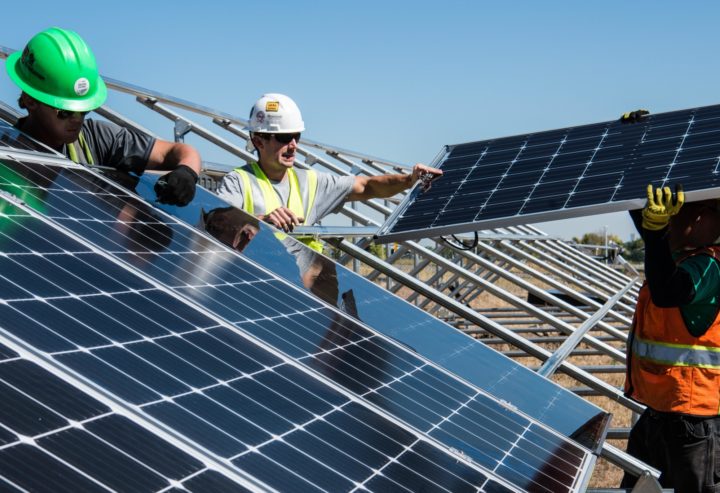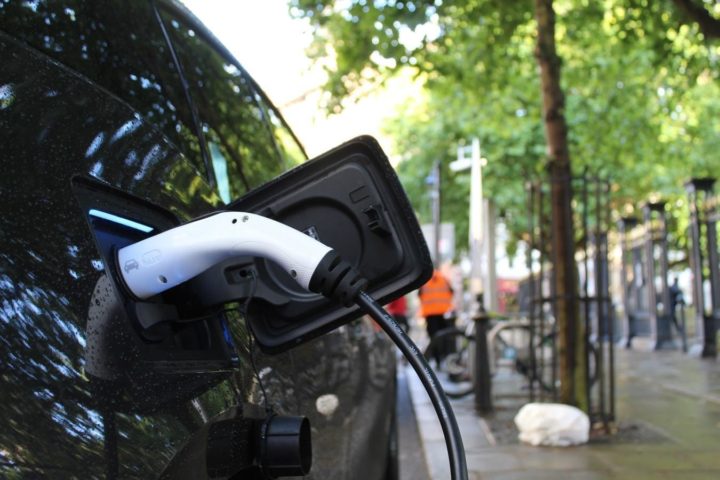Evidence, business and politics: the case for ‘Building back green’
Richard Black explores why the UK is more or less unanimous on calling for a green recovery

By Richard Black
@_richardblackShare
Last updated:
Pop-quiz time: In 2020, what do Iain Duncan Smith, Greenpeace, McKinsey and UN Secretary-General António Guterres have in common?
Straight to the answer: all have to a greater or lesser extent recently called for Prime Minister Boris Johnson and Chancellor Rishi Sunak to ‘get Britain moving’ after the Covid-19 lockdown in such a way that Britain also moves towards its legal-binding net zero emissions target.
It’s not just this somewhat unlikely quartet. My colleague Kathy Grenville has been keeping tabs on precisely who’s been saying what recently. And what strikes you as you read through it is just how many individuals and organisations are plugging a ‘green’ recovery.

Mark Carney, WWF, the Smith School at Oxford University… all names you might expect to see on the list. But the International Energy Agency, the CBI, Conservative Mayors Andy Street and Ben Houchen, a senior International Monetary Fund advisor, the main UK energy industry lobby group EnergyUK…
Not too long ago in the same situation we might have seen such organisations offering up notes of ‘caution’ – ‘move towards net zero, but not too quickly‘ – that kind of thing.
Not any more.
In fact, it’s hard to think of anyone credible who’s publicly opposed a recovery package that also helps the nation get on track to net zero.
Certainly both the main political parties are in public going for it, with Sir Keir Starmer and Ed Miliband for Labour mirroring senior Conservatives such as Dominic Raab who declared in April that it is the ‘duty of every responsible government’ to reboot economies along climate lines, which means ‘investing in industries and infrastructure that can turn the tide on climate change.’
What, then, has brought the nation to such a condition of near-uniformity at a time when one might have expected the weighty legacy of lockdown to turn minds towards the extremely short-term – towards nothing more than re-booting jobs and getting the economic wheels turning as fast as possible and hang the consequences for climate change?
Triple win
There are three factors that I think have been crucial.
One is business support. Were businesses and their lobby groups less than fully behind a ‘green’ recovery, ministers would surely have contracted cold feet and concerns about how practical such an approach would be.
But in fact there’s been precious little demur – as was the case 18 months ago when the UK’s Committee on Climate Change sought opinions on its proposed ‘net zero by 2050’ target and saw business send back 60+ responses which were all supportive.
The second is public opinion. The net zero target, hosting next year’s UN climate change summit and in general being a ‘climate change leader’ are now as hard-wired into the philosophies of all the main political parties as seafood is into Homer Simpson’s.
Why? Essentially, because the public demands it. Just before Covid-19 hit, a Citizen’s Advice survey showed 82% of the public wanted the UK to achieve its net zero target, and similar numbers were prepared to do things essential to achieving net zero in coming years like switching to an electric car or changing their home heating system.
While arguably there hasn’t been as comprehensive a poll since then, a succession of surveys, some in the last couple of weeks, have found 74% of the population backing rebuilding greener and only 7% backing condition-free bailouts to airlines (IPPR) and nearly 70% saying failure to ‘build back greener’ would be bad for the economy and would prove that politicians don’t listen to ‘people like me’ (Conservative Environment Network).
Those are the kinds of numbers that politicians go against only rarely. And putting political considerations aside, why should ministers go against them? It is after all our money they’re allocating, not their own.
Short-term, long-term
But the third factor is I think the most interesting: namely, the mound of evidence showing that ‘building back green’ will not compromise the short-term needs on jobs and growth, and is in fact part of the short-term solution.
Yes, of course opening shops and hairdressers and pubs and garden centres as far as can safely be done are key. So is supporting people who are coming back to work gradually, and those still not able to.

But in terms of investment… no-one has come up with any serious evidence against ‘green’ build-back measures that can stand a credible counter to that from IPPR, for example, which has shown how ‘shovel-ready’ investment could create 560,000 jobs in home upgrades and 45,000 each in electric vehicle charging rollout and nature enhancements – much of which could start now.
Or that from the Local Government Association concluding that 700,000 new jobs could be created over the next decade in fields such as low-carbon heat and renewable electricity generation.
Or that from Vivid Economics showing that every £1 invested (sensibly) in ‘green’ measures returns £3-8 to the national economy.
Or that from the Energy Efficiency Infrastructure Group which concludes that creating jobs in cutting people’s energy waste and therefore energy bills is four times more efficient than investing the same amount in road-building.
Whatever Chancellor Sunak announces on Wednesday and whatever other measures follow in the coming months, there’s little doubt that now, unlike after the 2008/9 financial crash, the business world, the public and the evidence are all unequivocally behind a ‘green’ recovery.
…which is also, in turn, why the backing is coming at such volume from so many quarters.
Share